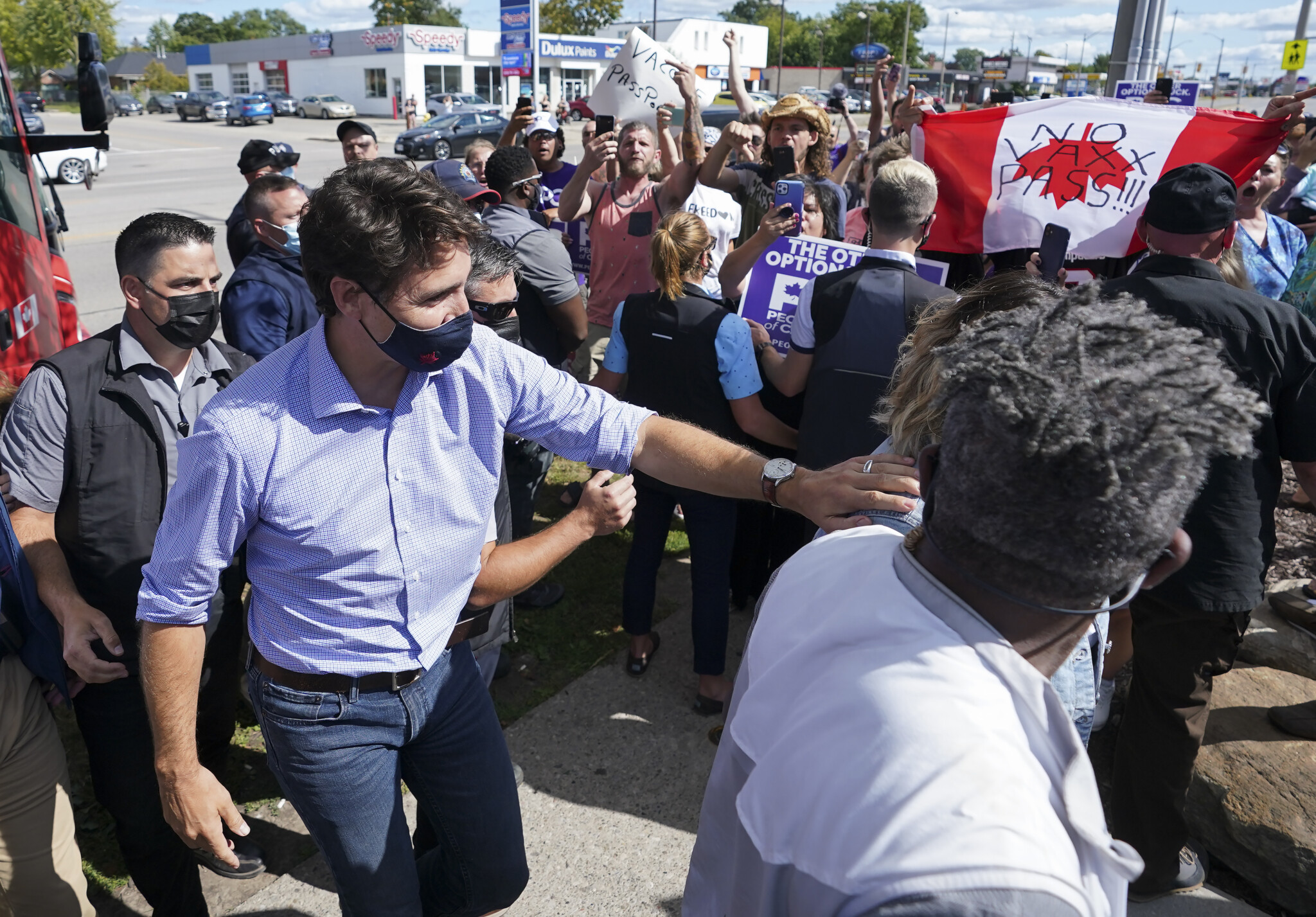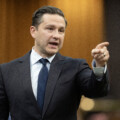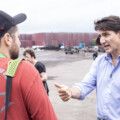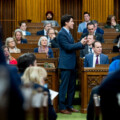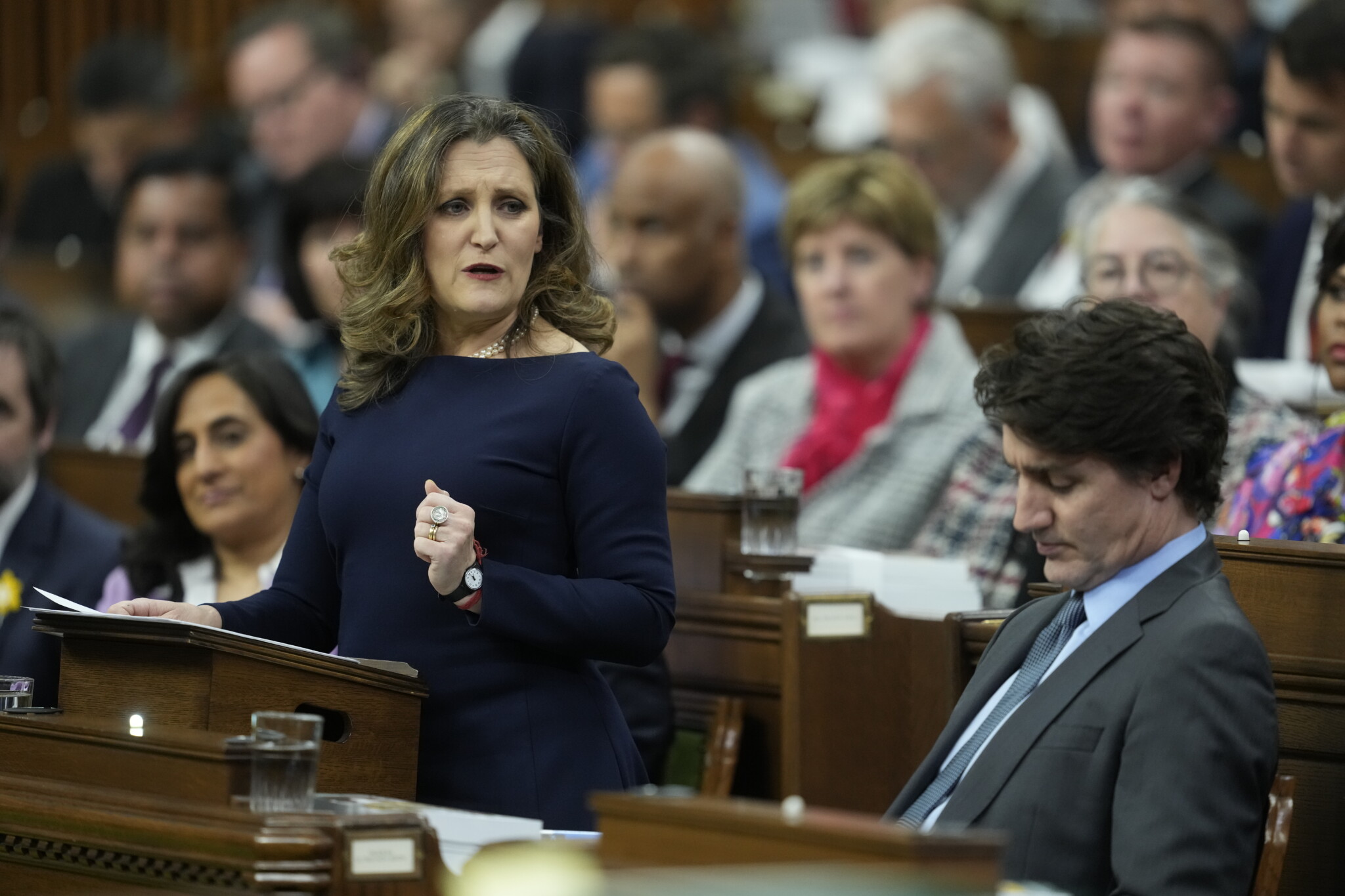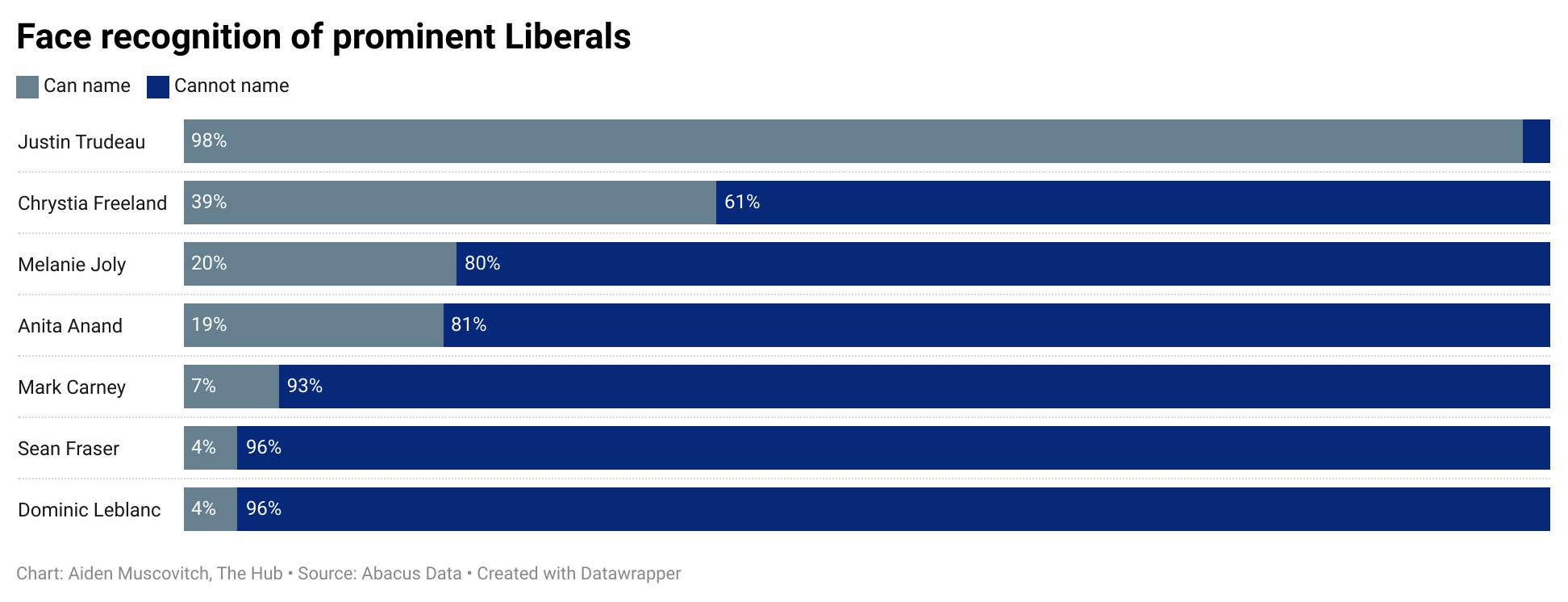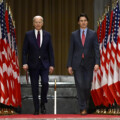Spending on protecting Canadian MPs may have risen as much as 112 percent in the past six years, as threats against elected officials have grown.
Meanwhile, the combined spending for Parliament Hill’s dedicated security force and the RCMP’s protection of both the prime minister and MPs reached over $131 million last year.
This month, the abilities of politician protective details have come into question, after the attempted assassination of the United State’s 45th president and Republican presidential candidate, Donald Trump. Those questions are just as salient in Canada.
Last May, the sergeant-at-arms of the House of Commons Patrick McDonell, responsible for security in the House of Commons, told a standing committee that reports of harassment against members of Parliament increased as much as 800 percent in the past five years.
“In 2019, we opened approximately eight files on threat behaviours—either a direct or indirect threat—towards an MP. In 2023, there were 530 files opened,” said McDonell. He said this growth of threats had been driven by online behaviour.
The same month, Canada’s intelligence agency CSIS warned that violent rhetoric around the Israel-Hamas war could incite real violence in Canada.
In this heated political environment and considering increasing threats against world leaders worldwide, The Hub has looked into the spending of the Royal Canadian Mounted Police (RCMP) on the security of our politicians when they are operating outside of Parliament Hill.
Since 2018, RCMP spending to protect parliamentarians across the country rose by at least 59.5 percent, according to information obtained from the national police service. Their fiscal year spans the months between April 1 and March 31. In 2018-19, the RCMP spent $1.5 million on protection of Canada’s 338 MPs, while in just the first three quarters of 2023-24, the national police force spent $2.5 million.
For the fiscal year 2023-24, the RCMP was only able to provide The Hub with its MP protection spending between April and December, 2023. We’ve estimated that if the RCMP’s MP protection spending from December 2023 to March 2024 was the average spent during the quarters between April and December 2023, last fiscal year’s total MP protection spending would be $3.3 million—a 112 percent increase from six years ago.
According to the RCMP, this spending covers everything from pay and overtime, travel expenditures, program operating expenses and costs for election security for RCMP officers protecting MPs outside of Parliament Hill. It does not include the everyday security at Parliament Hill in Ottawa, which is the function of the Parliamentary Protective Service.
A substantial dip in the RCMP’s MP protection spending appears to have occurred in 2020, during the height of the COVID-19 pandemic and lockdowns which kept people and politicians at home.
In 2021, MP protection spending began to rise. Strong attitudes against COVID-19 pandemic policies and the government in general fueled protests such as the 2022 convoy protest, during which over 500 criminal charges were laid in Ottawa.
Spending to protect the Prime Minister Justin Trudeau and his family through the RCMP’s Prime Minister Protection Detail (PMPD) for these two full fiscal years is set out below.
Spending in fiscal year 2022-23 was $32 million, or 178.9 percent more than the same year’s RCMP spending on MP protection.
Finally, The Hub looked at spending on the Parliamentary Protective Service (PPS) according to their financial statements.
The PPS was established in 2015 as an amalgamation of the Senate Protective Service and the House of Commons Protective Service, to protect and surveil specifically the Parliament in Ottawa under the operational command of the RCMP. It formed following a 2014 attack on Parliament Hill, where an armed attacker breached Parliament and made it within steps of then Prime Minister Stephen Harper. It resulted in the tragic death of a ceremonial guard at the War Memorial, and raised questions about security on the Hill.
Between 2017 and 2023, the PPS’ total expenses rose 55 percent from $67 million to $105 million. The PPS is responsible for all regular security checks at the Parliamentary Block of Canada’s federal government.
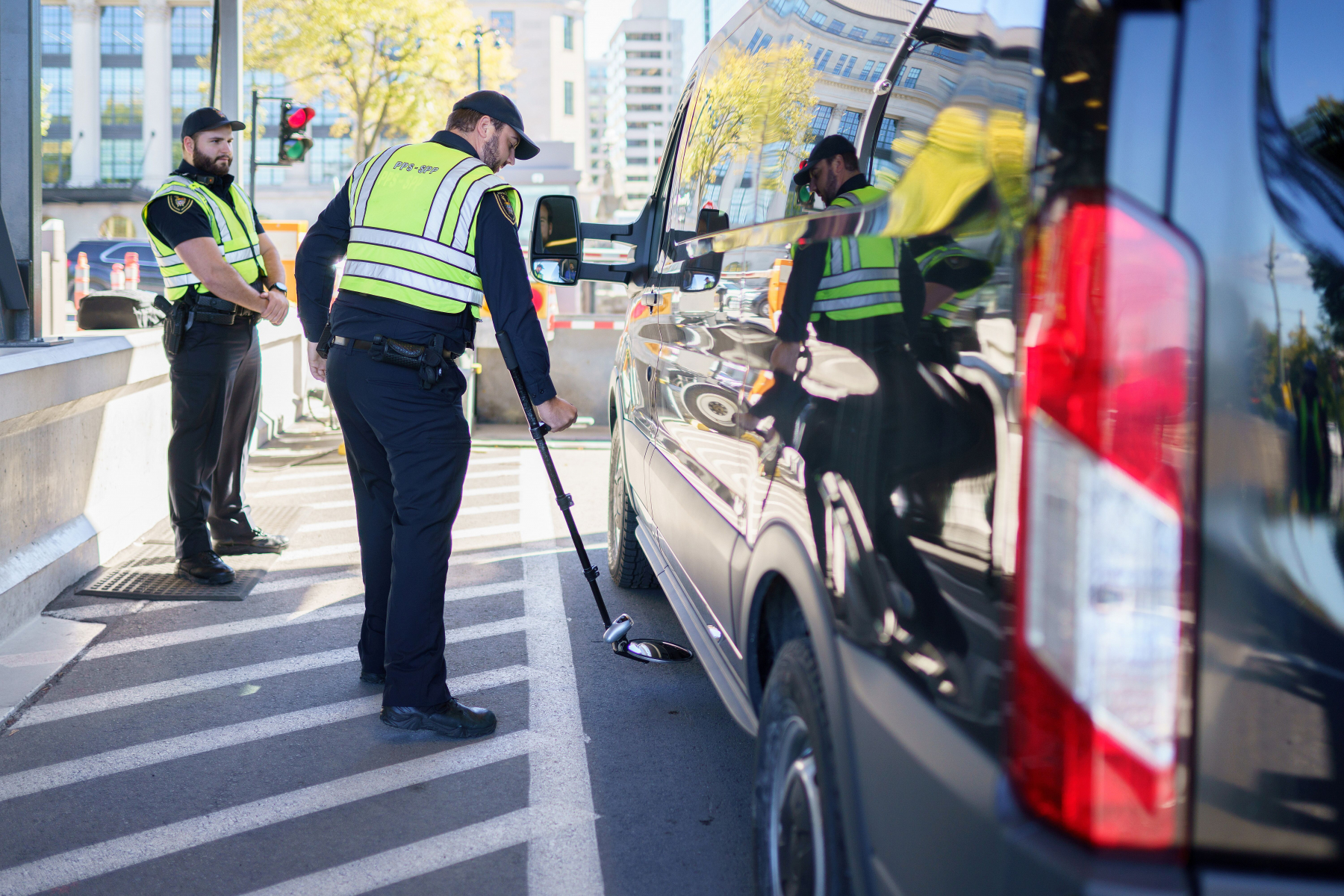
Parliamentary Protective Service members process a vehicle for entering Parliamentary grounds. Parliamentary Protective Service.
